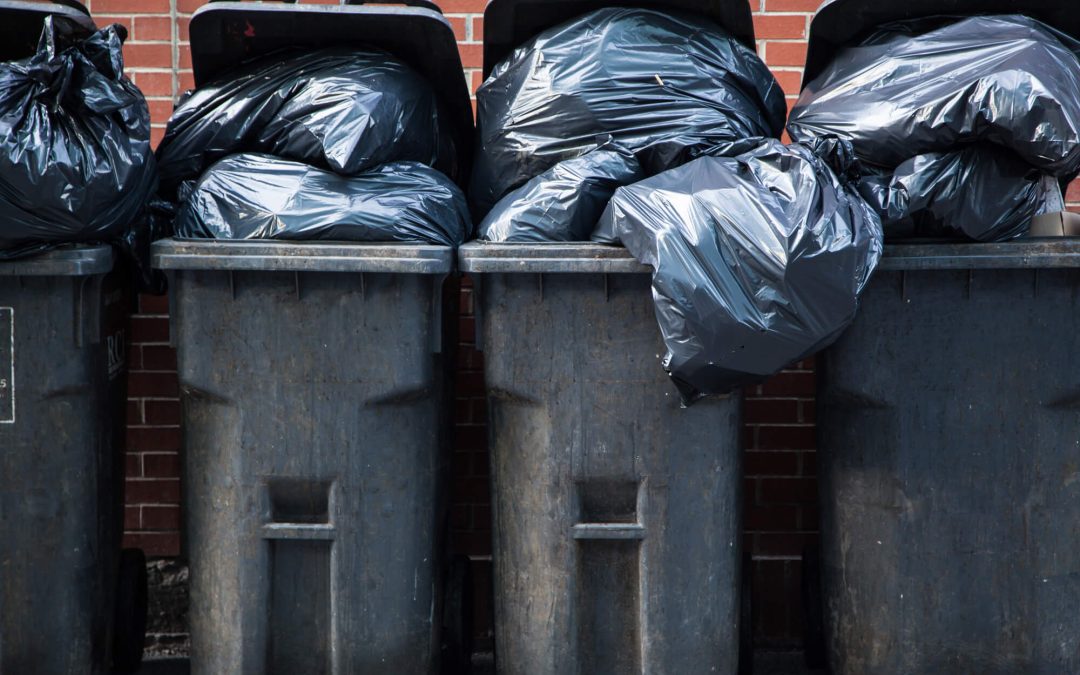Reducing household waste is one of the most impactful actions homeowners can take to contribute to a healthier planet. As landfills overflow and environmental concerns grow, adopting habits that minimize waste has never been more crucial. With some easy adjustments, you can save money, simplify your lifestyle, and reduce your carbon footprint. In this guide, we’ll explore several effective strategies to reduce household waste, helping you create a more sustainable home.
Start with Mindful Consumption to Reduce Household Waste
One of the best ways to reduce waste is by addressing it at its source. Before buying new products, pause to evaluate your needs. Are you purchasing something out of necessity, or is it an impulse buy? By focusing on mindful consumption, you can cut back on excess packaging, unnecessary items, and the clutter that contributes to household waste.
Whenever possible, opt for products that are durable, reusable, and made from sustainable materials. For example, swap single-use plastic containers for glass or stainless steel alternatives. When grocery shopping, bring reusable bags, and choose products with minimal or eco-friendly packaging.
Compost Organic Waste
Food waste is a major contributor to household trash, but it doesn’t have to be. By composting organic waste, you can divert a significant portion of your garbage from landfills while enriching your garden soil in the process. Composting is easier than many homeowners think, and you don’t need a large yard to start.
To begin, set up a designated compost bin for kitchen scraps like fruit and vegetable peels, coffee grounds, eggshells, and yard waste such as grass clippings and leaves. Avoid adding meat, dairy, or processed foods to your compost, as they can attract pests and create unpleasant odors. With time, your compost will break down into nutrient-rich soil that you can use in your garden, reducing the need for chemical fertilizers.
Practice Recycling Diligently
Recycling is a well-known method for reducing waste, but not everyone recycles as effectively as possible. Start by educating yourself about what materials your local recycling program accepts. While paper, glass, and aluminum cans are commonly recycled, some areas also accept plastic bottles, cardboard, and certain types of packaging.
Make recycling a habit by placing a bin in a convenient location, such as next to your trash can, so it’s easy to separate recyclables from regular waste. Remember to rinse out containers before recycling, as food contamination can make some items unrecyclable.
Reduce Single-Use Plastics
Single-use plastics are a significant contributor to household waste. These items—such as plastic bags, water bottles, and straws—are often used once and discarded, contributing to environmental pollution and filling landfills.
To reduce your reliance on single-use plastics, invest in reusable alternatives. Switch to stainless steel or glass water bottles and bring reusable shopping bags to the grocery store. You can also opt for beeswax wraps instead of plastic wrap for food storage. These simple changes can have a big impact over time, cutting down on the volume of plastic waste your household generates.
Repair and Repurpose Items to Reduce Household Waste
Instead of throwing away items at the first sign of wear, consider repairing or repurposing them. Many products, from clothing to electronics, can be fixed with a little effort. Learning basic repair skills not only helps reduce waste but can also save money in the long run.
For items that can’t be repaired, think about how they can be repurposed before disposing of them. An old t-shirt, for example, can become a cleaning rag, while glass jars can be used for food storage. By finding creative ways to give new life to old items, you can reduce the need for new purchases and cut back on waste.
Buy in Bulk
Another way to reduce packaging waste is by purchasing items in bulk. When you buy products in larger quantities, you typically use less packaging per unit of the item. Many grocery stores now offer bulk bins for items like grains, nuts, and dried fruits, allowing you to bring your own containers and cut down on plastic and cardboard waste.
In addition to reducing packaging, bulk buying can also save you money in the long run. Just be mindful of your consumption to avoid purchasing more than you need, which could lead to food waste.
Opt for Digital Over Physical
In today’s digital age, there are plenty of ways to reduce paper waste by going digital. Instead of receiving paper bills, opt for electronic statements and pay your bills online. Cancel subscriptions to physical magazines and newspapers and opt for digital versions instead.
Even in your personal life, consider reducing your reliance on paper. Use note-taking apps instead of jotting things down on paper, and send digital invitations and cards for special events. These simple changes can significantly reduce your household paper waste.
Donate or Sell Unwanted Items
When decluttering your home, think twice before throwing items away. Many things that are no longer useful to you could be of value to someone else. Clothing, electronics, furniture, and even kitchenware can often be donated to local charities or sold online.
By donating or selling items instead of tossing them, you not only reduce waste but also give your belongings a second life, benefiting others. Additionally, many charitable organizations will pick up larger items like furniture, making it easy to declutter responsibly.
Reducing household waste is a meaningful step toward living a more sustainable lifestyle. By adopting mindful consumption habits, composting organic materials, recycling diligently, reducing single-use plastics, and finding creative ways to repurpose items, you can significantly reduce the amount of waste your home produces. Small changes add up over time, and by making these shifts, you can create a greener home while contributing to the environment’s well-being.
FAQs on How to Reduce Household Waste
How can I reduce waste when hosting a party or event?
When hosting a party, avoid single-use items like disposable plates, cups, and cutlery. Instead, use your regular dishware or rent reusable party supplies. Opt for digital invitations instead of paper ones, and plan meals carefully to reduce food waste. Leftovers can be stored for later or sent home with guests in reusable containers.
What are some waste-reducing habits for parents with young children?
Parents can reduce waste by using cloth diapers instead of disposable ones and opting for reusable baby wipes. Instead of buying brand-new clothes, toys, or gear, consider purchasing secondhand or participating in local swap events. When feeding babies, use washable bibs, utensils, and containers rather than disposable options.
How can I reduce waste with my cleaning supplies?
Swap disposable cleaning products, such as paper towels and single-use wipes, for reusable alternatives like microfiber cloths and washable mop heads. Consider making your own cleaning solutions with household ingredients like vinegar and baking soda, which also reduces the need for plastic packaging associated with commercial cleaners.
What should I do with old textiles like clothes?
Donate old clothes in good condition to a nonprofit or shelter. For items that are too worn out for reuse, check for textile recycling programs in your area. Many municipalities and retailers have textile recycling bins where old fabrics are repurposed into new products or materials.
Rambo Inspection Services provides home inspections in the Chicagoland area. Contact us to schedule our services.

